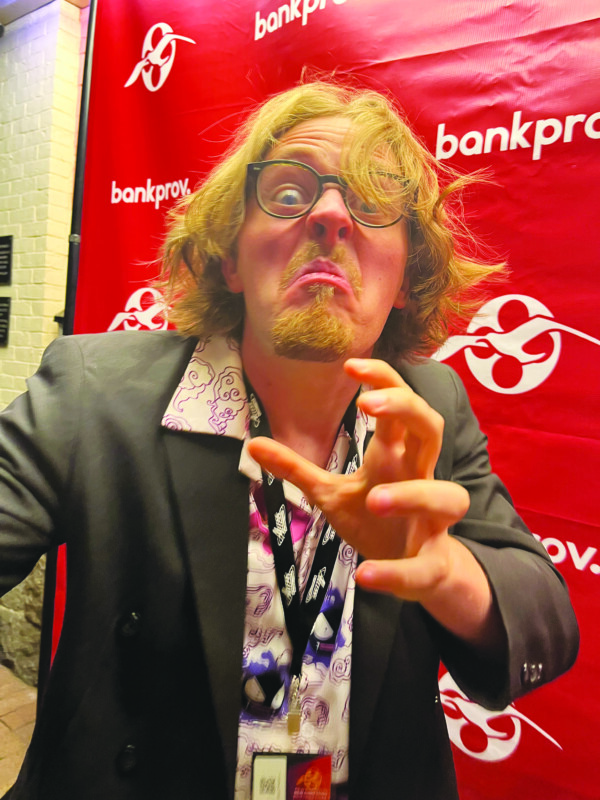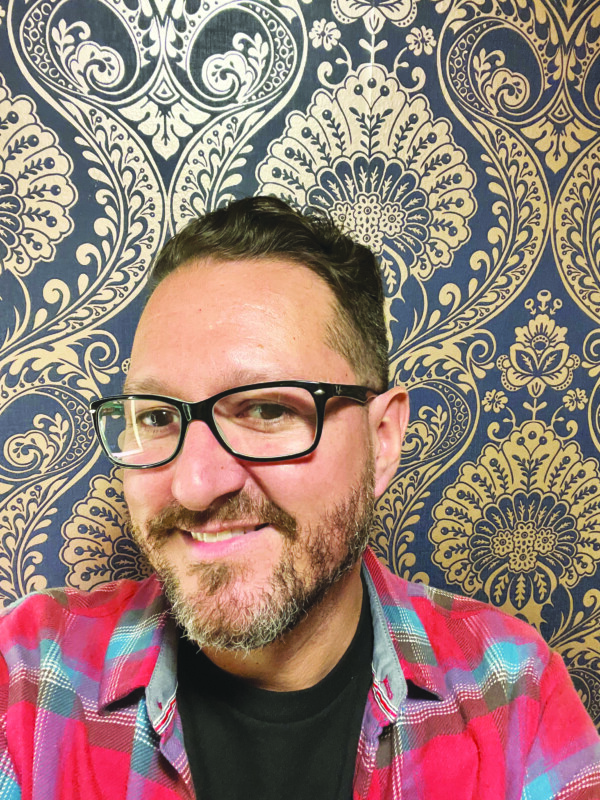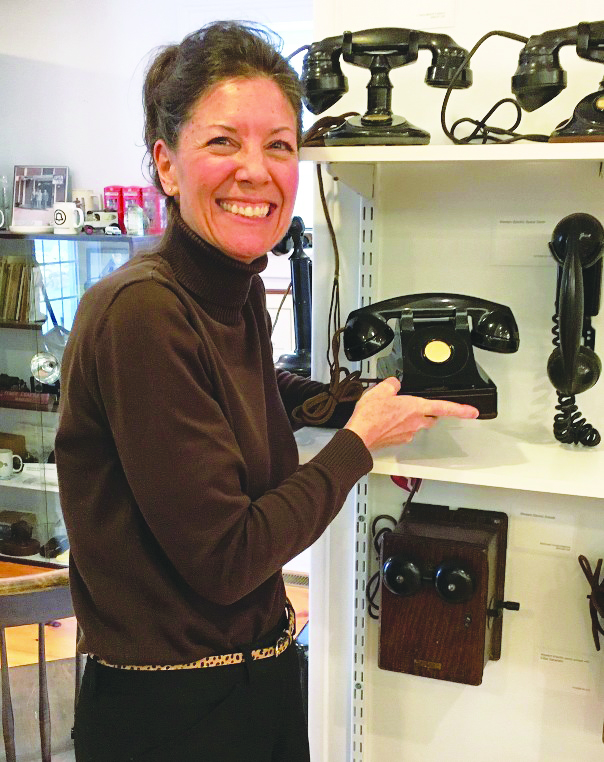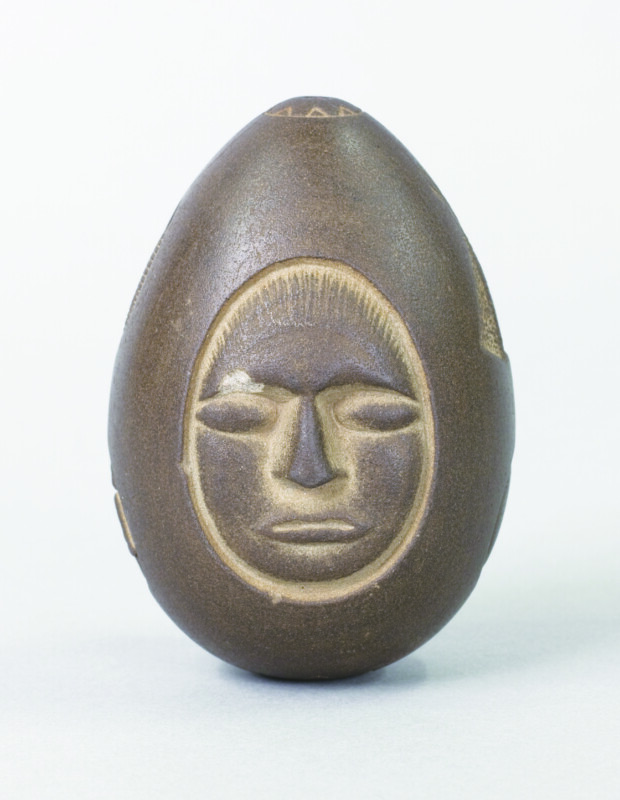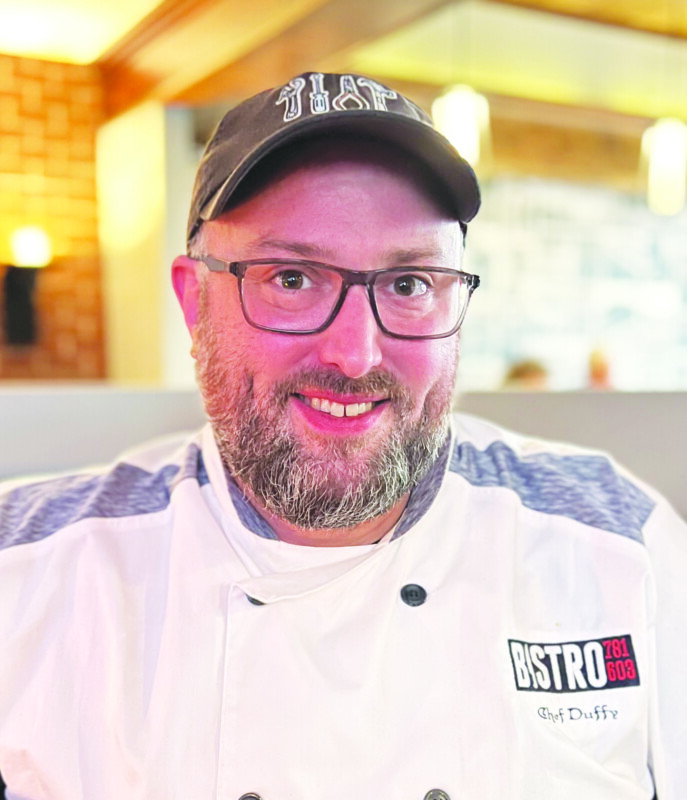Inspiring future engineers with Zach Umperovitch
Zach Umperovitch is the national contest director at the Rube Goldberg Institute for Innovation & Creativity. A New Hampshire native, Zach is a three-time Guinness World Record holder, a national Rube Goldberg contest champion and an on-screen expert, judge and engineering producer for Contraption Masters on the Discovery Channel. He is also well-known for his work for Domino Masters, Google, Red Bull, Disney, ESPN and Sonic the Hedgehog 2. From Saturday, June 22, through Friday, June 28, you can find him at the fourth annual “Kickoff to Summer” with Zach’s Contraptions at the SEE Science Center in Manchester. Visit @ZachsContraptions on YouTube, @zachscontraptions on Instagram and rubegoldbergmachineexpert.com.
What is a Rube Goldberg machine?
A Rube Goldberg machine is a contraption or invention that takes a very simple task such as watering a plant or zipping a zipper and makes it incredibly complicated in a funny way using everyday objects.
How did you get interested in them?
I got involved with Rube Goldberg machines when I was 3 years old, before I even knew what they were. I was playing around with different parts around my house and my parents have a lovely photo of me building one up a staircase….
What was one of the first Rube Goldberg machines you ever invented?
One of the first ones I remember was, I wanted to knock something down the stairs, it was actually feeding a cat. It was a marble that went through my hamster’s tubing, which, fun fact, that hamster’s still missing. Then the marble slid out into a box, slid down the stairs, knocked over some dominoes and it knocked over a bowl of cat food and it just spilled all the cat food all over the place. But it effectively did feed our cat at the time.
Why do you think Rube Goldberg machines are so fascinating?
I think they’re really fascinating because there’s this child-like wonder and it’s bringing your imagination to life. I think all of us as kids, we played around with toys and sort of built these contraptions on our own. But seeing them in a bigger media space, and when I do them with things like shipping containers and yoga balls and giant fans and bicycles and seeing these crazy contraptions that we all built as kids in a larger setting, there’s such a sense of wonder and it brings us back. I’ve been to art galleries with very posh people and they look at these machines and they go, ‘Wow, this is amazing!’ And I built these machines for fishermen for the Seattle Boat Show and you’re thinking, big hearty fisherman guys, what are they going to think of a Rube Goldberg machine?, and they have the same response as some of the third-graders I teach. It really is just something that appeals to everyone’s childlike nature.
What will you be doing at the SEE Science Center?
I’m going to be building a life-size Rube Goldberg machine, roughly around 30 feet by 20 feet, so a really good size where I’m going to take exhibits, I’m going to take different items that are lying around the museum, I’m going to build a giant Rube Goldberg machine designed to help kick off summer. They always have their, it’s called the ‘Kickoff to Summer’ event, and quite literally, we’re going to kick off Summer with this machine. What does that mean? You actually have to go there to find out…. It’s going to be a liveexhibit, meaning that it’s going to be in one of the spaces that people can just visit through. Because they are anticipating larger crowds to come and see this, and only a select number of people can show up at a time to the museum … reservations aren’t necessary but recommended…. I’m going to have one of my smaller, portable Rube Goldberg machines … that’s going to be demonstrated. People will be able to play my Rube Golberg video game, Rube Works, there’s activities…. There may be TV monitors around that might be showing my show Contraption Masters or stuff from my YouTube Channel, Zach’s Contraptions.
With the television show and Sonic the Hedgehog 2, what was it like foraying into that realm?
It was a pretty incredible transition going from building these machines for collegiate events to actually going to the production scale. Sonic the Hedgehog was really nice because that was a 3D digital contraption, so a lot less mess, but really really cool in that millions of people have now seen that. My production company Zyyn Labs is the one behind OK Go [“This Too Shall Pass” music video] and we still get all the accolades from that. Working with Discovery and for my show Contraption Masters, it’s just such an incredible experience. I had the idea for 10 years and for it to be brought to life, the whole cast and crew just being so supportive and so behind the idea of it…. It’s so wonderful to have such passionate people and it’s only continued even from the competitions through the production side of things, people just really put their heart and soul into these things.
Can you talk about your book coming out on Nov. 12, 2024, with Rube Goldberg’s granddaughter called ‘Rube Goldberg’s Big Book of Building: Make 25 Machines That Really Work!’?
This book is going to be the guide to students building their own Rube Goldberg machines. It’s a wonderful manual that includes the basics behind Rube Goldberg but also how students, parents, home-school students, whoever, they’re able to take everyday objects that are already lying around and be able to build these contraptions using nothing more than scissors, string and duct tape. There’s 25 contraptions that I’ve personally built and we give step-by-step instructions, very much in a Lego style with these beautifully illustrated pictures. It’s such a wonderful book that we’re trying to get into every STEM classroom because it really is going to be such a helpful manual for students to begin thinking outside the box and begin their journey building Rube Goldberg machines.
What would you say to someone who’s interested in Rube Goldberg machines or building in general?
For anyone interested in building, inventing, possibly even the world of Rube Goldberg, it’s all about learning how to fail and learning from those failures. I might sound successful but in reality if 10 to 15 percent of what I make actually works, I’m thrilled, truly…. It’s understanding that there’s a lot of trial and error and you have to have the patience to persevere. If you do have that patience, the doors just open for you. It’s an incredible field to be in, but understanding how to fail and how to learn from failure is critical to success.
Kickoff to Summer with Zach’s Contraptions
Where: SEE Science Center, 200 Bedford St., Manchester
When: Saturday, June 22, through Friday, June 28
Info: see-sciencecenter.org, 669-0400
—Zachary Lewis
Featured image: Zach Umperovitch. Courtesy photo.

